
Madaba: The Mosaic City of Jordan
Madaba, located in central Jordan, is a city rich in history and culture, best known for its stunning Byzantine and Umayyad mosaics. The most famous of these is the 6th-century mosaic map of Jerusalem and the Holy Land, housed in the Greek Orthodox Church of St. George. This intricate map is a must-see for history enthusiasts and offers a unique glimpse into the ancient world. Beyond its mosaics, Madaba offers a variety of attractions that cater to different interests. The Archaeological Park showcases several well-preserved mosaics and ancient ruins, providing an immersive experience into the city's past. For those interested in religious history, the Madaba Museum and the Apostles Church are worth a visit. The city also serves as a gateway to Mount Nebo, where, according to tradition, Moses viewed the Promised Land. Madaba's vibrant local culture is another highlight. The city's bustling markets, traditional crafts, and warm hospitality make it a delightful place to explore. The local cuisine is a treat for the taste buds, with plenty of traditional Jordanian dishes to savor. Whether you're a history buff, a culture enthusiast, or simply looking to experience the warmth of Jordanian hospitality, Madaba offers a rich and rewarding experience.
Local tips in Madaba
- Visit the Greek Orthodox Church of St. George early in the morning to avoid crowds and get the best views of the mosaic map.
- Wear comfortable shoes as you'll be doing a lot of walking, especially in the Archaeological Park.
- Don't miss the Madaba Museum for a deeper understanding of the city's history and culture.
- Try the local Jordanian cuisine at one of the family-owned restaurants for an authentic dining experience.
- Consider hiring a local guide to get detailed insights and stories about the city's mosaics and historical sites.
- Plan a day trip to Mount Nebo for breathtaking views and to explore more of Jordan's biblical history.
Madaba: The Mosaic City of Jordan
Madaba, located in central Jordan, is a city rich in history and culture, best known for its stunning Byzantine and Umayyad mosaics. The most famous of these is the 6th-century mosaic map of Jerusalem and the Holy Land, housed in the Greek Orthodox Church of St. George. This intricate map is a must-see for history enthusiasts and offers a unique glimpse into the ancient world. Beyond its mosaics, Madaba offers a variety of attractions that cater to different interests. The Archaeological Park showcases several well-preserved mosaics and ancient ruins, providing an immersive experience into the city's past. For those interested in religious history, the Madaba Museum and the Apostles Church are worth a visit. The city also serves as a gateway to Mount Nebo, where, according to tradition, Moses viewed the Promised Land. Madaba's vibrant local culture is another highlight. The city's bustling markets, traditional crafts, and warm hospitality make it a delightful place to explore. The local cuisine is a treat for the taste buds, with plenty of traditional Jordanian dishes to savor. Whether you're a history buff, a culture enthusiast, or simply looking to experience the warmth of Jordanian hospitality, Madaba offers a rich and rewarding experience.
When is the best time to go to Madaba?
Iconic landmarks you can’t miss
Ma'in Hot Springs
Discover the serene beauty and therapeutic waters of Ma'in Hot Springs, a tranquil oasis in Jordan offering relaxation and wellness amidst stunning landscapes.
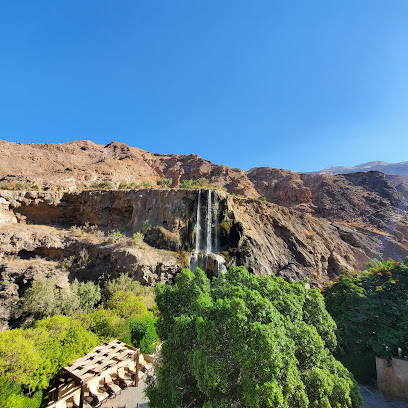
St George's Greek Orthodox Church
Explore the enchanting St George's Greek Orthodox Church in Madaba, home to the famous Madaba Map and breathtaking Byzantine mosaics in a serene atmosphere.
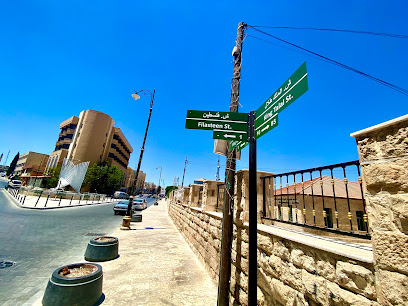
Memorial Church of Moses
Explore the Memorial Church of Moses on Mount Nebo: A historical and spiritual landmark with stunning views of the Holy Land.
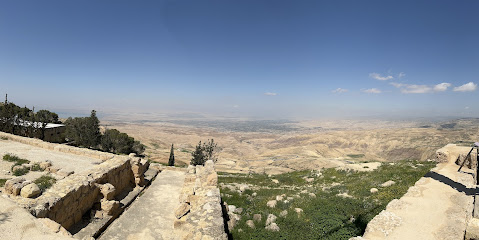
Mount Nebo
Discover Mount Nebo, a sacred site rich in biblical history, offering stunning views of the Holy Land and a serene atmosphere for reflection.
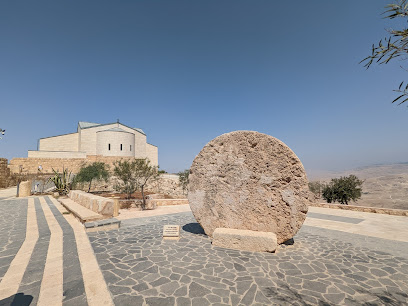
Roman Nymphaeum
Experience the beauty and history of the Roman Nymphaeum, a captivating ancient monument in the heart of Amman, Jordan.
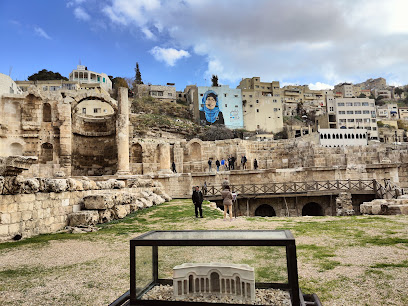
Al Hakaya Museum
Discover the rich history and culture of Jordan at Al Hakaya Museum, a captivating experience near Mount Nebo.
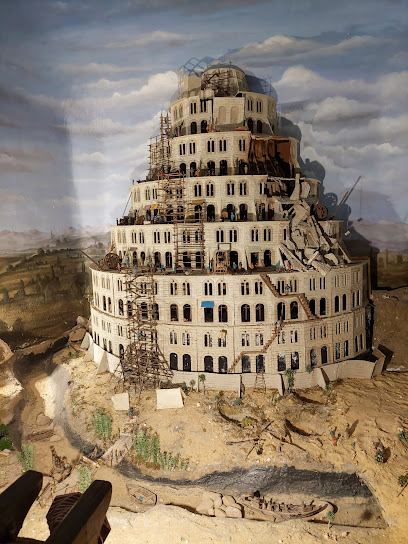
Fortress of Umm ar-Rasas (Old Roman City)
Discover the enchanting Fortress of Umm ar-Rasas, a UNESCO World Heritage site showcasing stunning Roman ruins and exquisite mosaics in the heart of Jordan.
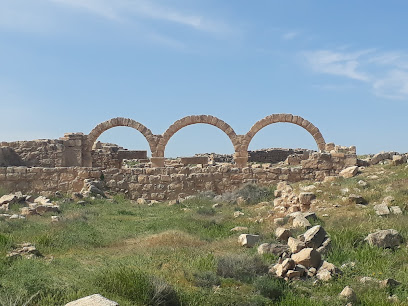
Apostles Church كنيسة الرسل
Explore the stunning mosaics and rich Christian heritage at the Apostles Church in Madaba, a must-visit historical landmark for travelers.
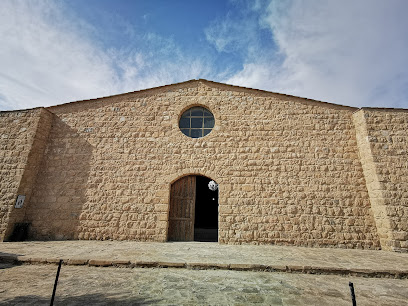
Qasr Al-Abed
Explore Qasr Al-Abed, a stunning Hellenistic castle in Jordan offering rich history, breathtaking architecture, and captivating landscapes.
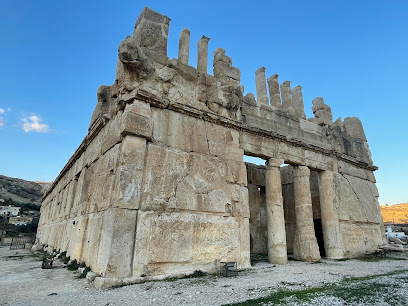
Ayola Cafe
Experience the authentic flavors of Jordan at Ayola Cafe, a cozy restaurant in Madaba known for its delicious cuisine and welcoming atmosphere.
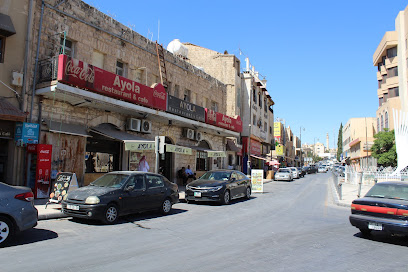
St. John the Baptist Roman Catholic Church
Discover the tranquility and beauty of St. John the Baptist Roman Catholic Church, a historical gem in Madaba, Jordan, known for its stunning mosaics and panoramic views.
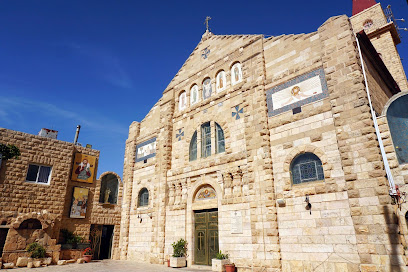
Mosaic City Hotel
Experience the charm of Madaba at Mosaic City Hotel, where Byzantine elegance meets modern comfort in the heart of Jordan.
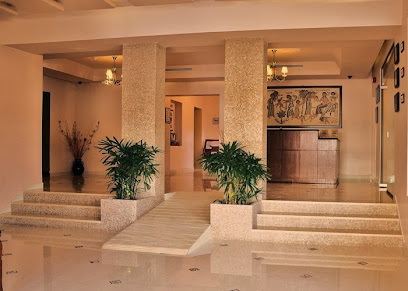
Madaba Archaeological Park
Discover the ancient wonders of Madaba Archaeological Park, home to exquisite mosaics and a rich tapestry of Jordan's historical heritage.
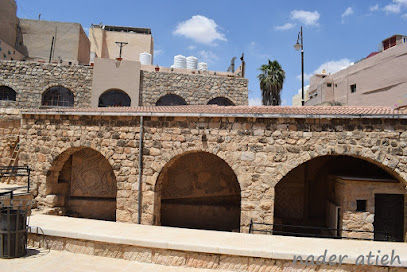
Black Iris Hotel
Experience the charm of Madaba at Black Iris Hotel, where comfort meets cultural heritage amidst the stunning landscapes of Jordan.

Kawon bookstore
Explore the literary treasures at Kawon Bookstore in Madaba, Jordan - a haven for rare books and a unique cultural experience.
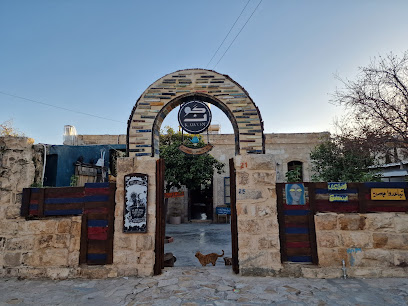
Unmissable attractions to see
Ma'in Hot Springs
Discover the rejuvenating beauty of Ma'in Hot Springs, where natural thermal waters meet breathtaking landscapes in Jordan.

Qumran National Park
Explore Qumran National Park, home of the Dead Sea Scrolls, where ancient history meets breathtaking desert landscapes.
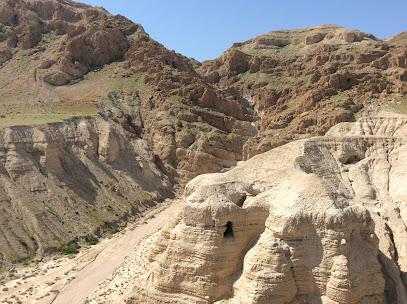
King Abdullah I Mosque
Experience the architectural beauty and spiritual serenity of the King Abdullah I Mosque, a cultural gem in the heart of Amman, Jordan.
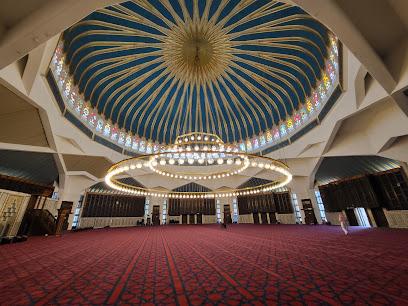
King Abdullah II Park
Discover tranquility and recreation at King Abdullah II Park, a stunning urban oasis in the heart of Amman, perfect for relaxation and outdoor activities.

The Baptismal Site of Jesus Christ
Explore the sacred Baptismal Site of Jesus Christ in Jordan, a historical landmark that offers peace, reflection, and spiritual insight.
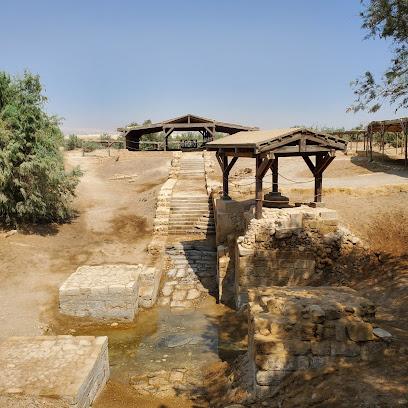
The Royal Automobile Museum
Explore the rich automotive heritage at The Royal Automobile Museum in Amman, where history and engineering meet in a stunning collection of vehicles.

Qasr el Yahud
Discover the profound spiritual significance of Qasr el Yahud, the site of Jesus' baptism, and immerse yourself in sacred history along the Jordan River.
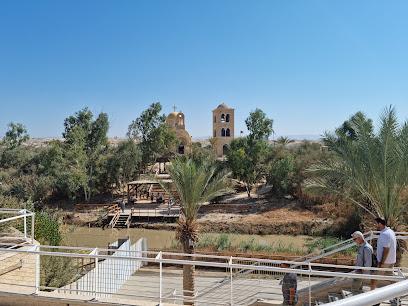
St George's Greek Orthodox Church
Explore St George's Greek Orthodox Church in Madaba, Jordan – a historical gem with stunning mosaics and a serene atmosphere.
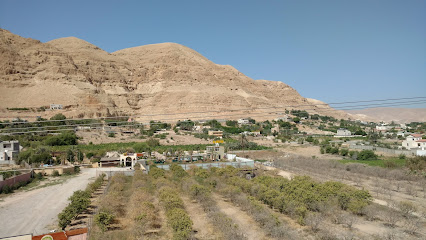
St George's Greek Orthodox Church
Discover the breathtaking mosaics and rich history of St George's Greek Orthodox Church, a top cultural attraction in Madaba, Jordan.
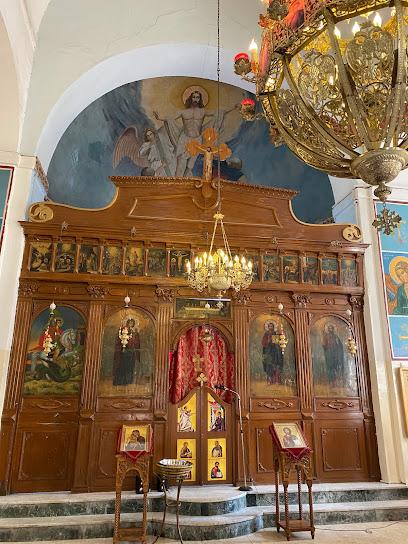
Ein Prat Nature Reserve
Discover the stunning landscapes and rich history of Ein Prat Nature Reserve, a must-visit national reserve in Israel for nature lovers and adventurers.
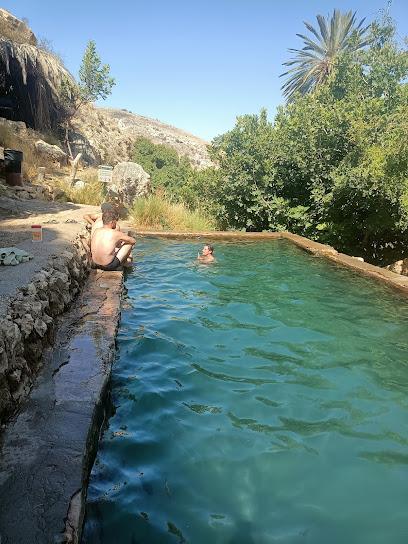
The Jordan Museum
Explore The Jordan Museum in Amman for a captivating journey through Jordan's rich cultural and historical heritage, featuring artifacts like the Dead Sea Scrolls.
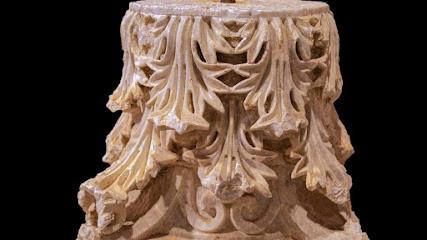
The Royal Tank Museum متحف الدبابات الملكي
Explore the Royal Tank Museum in Amman for an insightful journey into Jordan's military history and a showcase of remarkable armored vehicles.
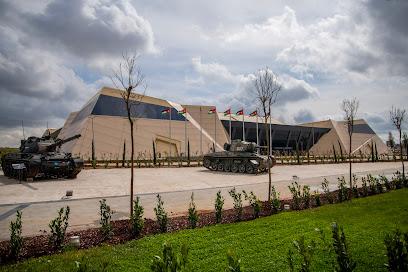
Cave Of The Seven Sleepers (Ashabul Kahf)
Explore the Cave of the Seven Sleepers in Amman, Jordan, a historic site of legend and spirituality surrounded by breathtaking natural beauty.
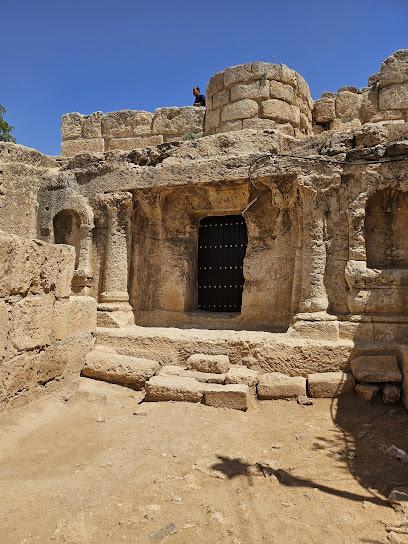
Jericho Cable Car
Experience breathtaking views and rich history at the Jericho Cable Car, the perfect blend of adventure and cultural exploration.
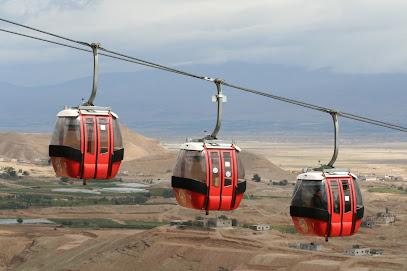
Dead Sea Museum
Discover the Dead Sea Museum: A cultural exploration of history, nature, and breathtaking views of the world's saltiest sea.
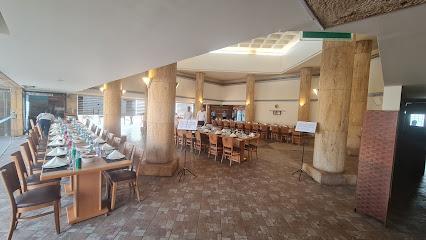
Essential places to dine
مطعم حارة جدودنا
Discover authentic Jordanian cuisine at مطعم حارة جدودنا in Madaba—where tradition meets flavor in every dish.
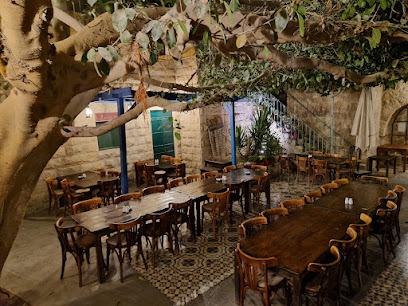
Ayola Cafe
Discover the flavors of Jordan at Ayola Cafe in Madaba - where tradition meets taste in a cozy setting.
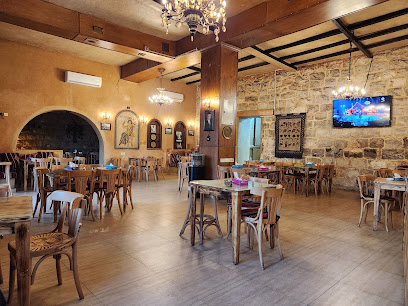
Mosaic City Hotel
Experience exquisite dining and warm hospitality at Mosaic City Hotel in Madaba - your gateway to Jordanian flavors and culture.
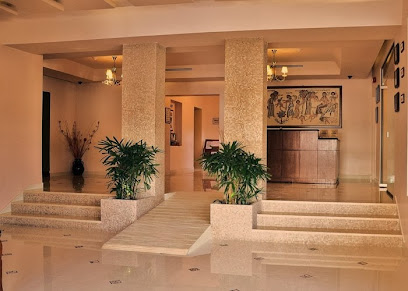
مطعم مراح سلامه Mrah Salameh Restaurant
Experience authentic Jordanian flavors at Mrah Salameh Restaurant in Madaba - where every meal tells a story.
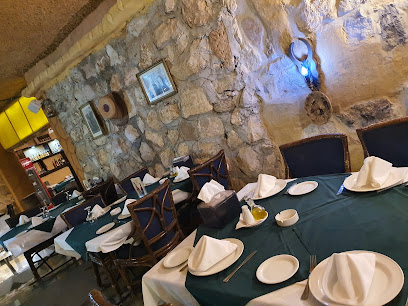
Bawabit Madaba Restaurant & Cafe
Experience authentic Jordanian flavors at Bawabit Madaba Restaurant & Cafe - a perfect blend of taste and tradition in historic Madaba.
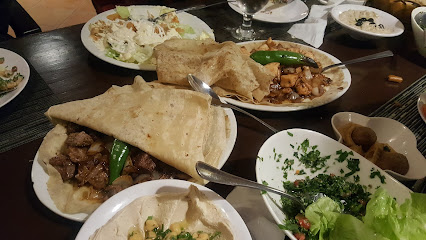
Fokar & Bhar Restaurant
Discover authentic Middle Eastern flavors at Fokar & Bhar Restaurant in Madaba, where every meal is a celebration of culture and taste.
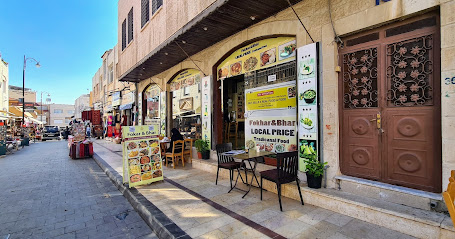
Carob House بيت الخروب
Discover Carob House in Madaba - where traditional Jordanian cuisine meets innovative culinary artistry in an inviting atmosphere.
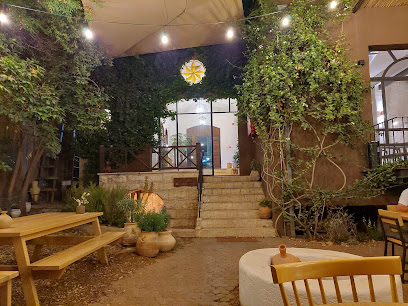
Al-Mandi kitchen & Restaurant
Experience the essence of Jordanian cuisine at Al-Mandi Kitchen & Restaurant in Madaba, where authentic flavors meet warm hospitality.
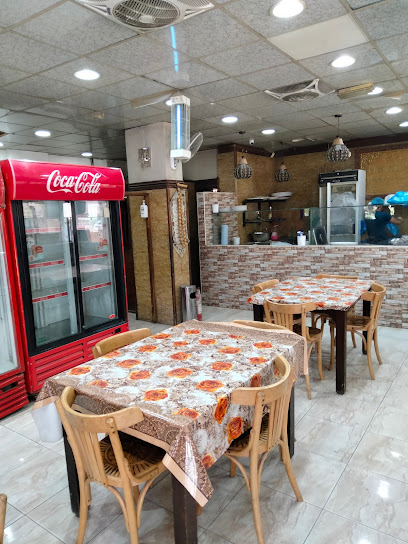
Jaw Zaman Restaurant and Caffè
Experience authentic Jordanian flavors at Jaw Zaman Restaurant and Caffè in Madaba - where tradition meets modern dining.
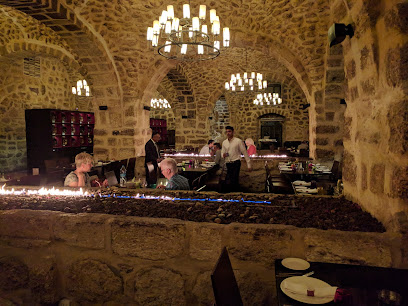
Ayar
Discover authentic Jordanian flavors at Ayar in Madaba – where culinary tradition meets warm hospitality.
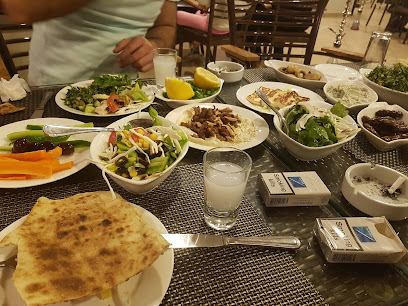
Adonis Restaurant مطعم ادونيس
Discover authentic Jordanian flavors at Adonis Restaurant in Madaba - a must-visit culinary destination!
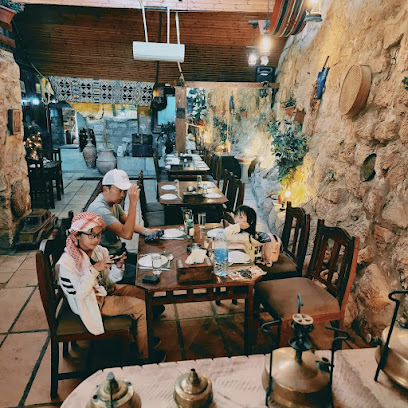
FireHouse Restaurant
Discover authentic Jordanian flavors at FireHouse Restaurant in Madaba - where every meal tells a story.
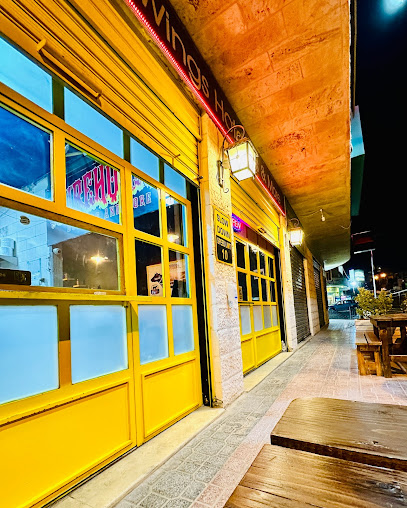
مطعم وكوكتيل بوابة القريه
Experience authentic Jordanian cuisine at Al Qareh Restaurant in Madaba - where delicious flavors meet warm hospitality.
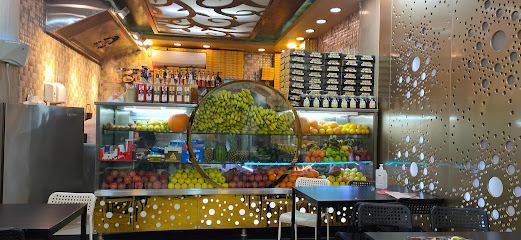
Kawon once upon a time
Discover Kawon Once Upon a Time in Madaba: A delightful blend of vegetarian cuisine and literary treasures awaits you.
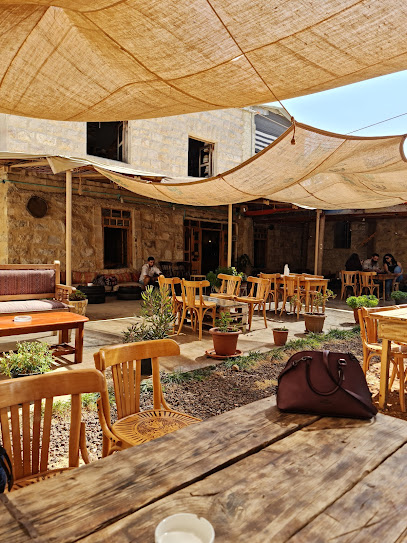
DANA Hills Restaurant
Experience authentic Jordanian flavors at DANA Hills Restaurant in Madaba while enjoying breathtaking views of the surrounding hills.
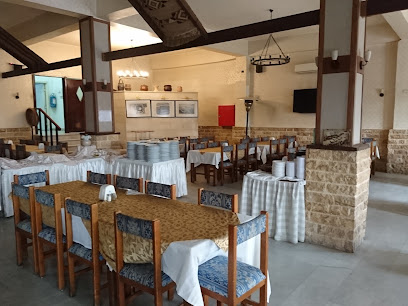
Markets, malls and hidden boutiques
Madaba City Mall
Discover Madaba City Mall: A vibrant shopping destination in Jordan with diverse brands, dining, and entertainment options for every tourist.
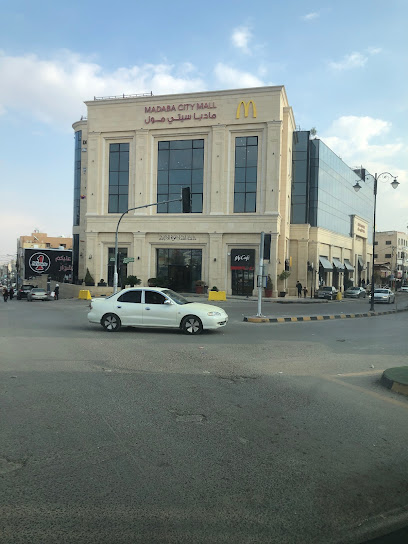
Kawon bookstore
Discover the charm of Kawon Bookstore in Madaba, where rare books and a peaceful ambiance create a unique reading experience.
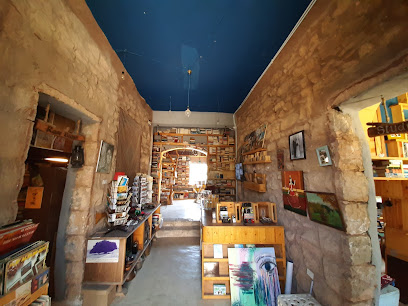
Madaba old market shops Dawayima
Discover the heart of Jordanian culture at Madaba Old Market Shops, where vibrant crafts and delicious local cuisine await every visitor.
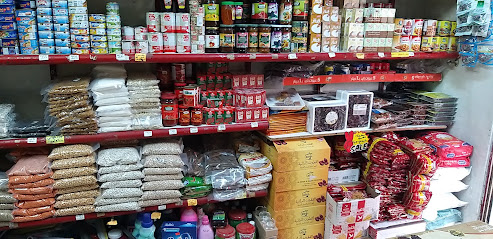
Hangover Liquor Store
Explore Madaba's Hangover Liquor Store for a diverse selection of beverages and local treats perfect for any traveler.
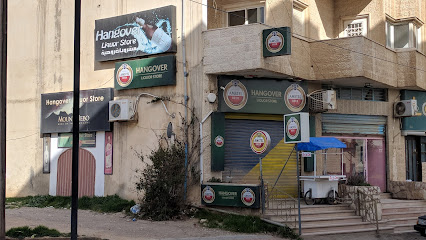
Made in Jordan
Explore authentic Jordanian craftsmanship at Made in Jordan, your go-to gift shop in Madaba for unique souvenirs and local treasures.
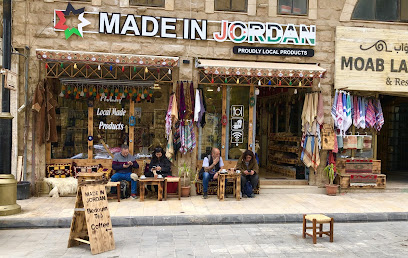
Madaba Handcrafts & Arts Center
Discover unique Jordanian crafts at the Madaba Handcrafts & Arts Center, where local artistry meets cultural heritage in the heart of Madaba.
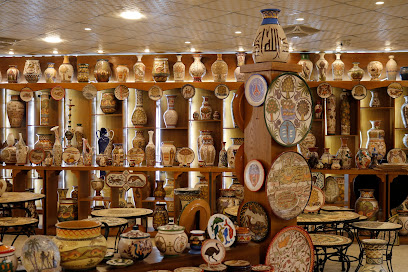
Mousa Haddad Center
Explore the best of Jordanian craftsmanship at Mousa Haddad Center in Madaba, where unique souvenirs and exceptional service await you.
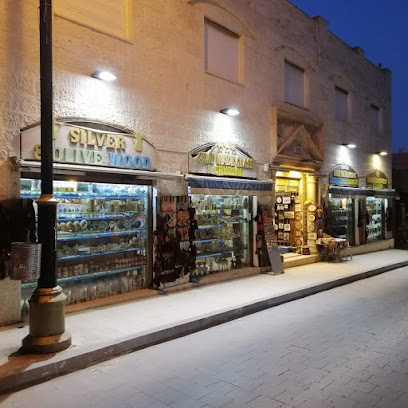
Darb Madaba Mosaic Workshop
Discover the artistry of mosaic-making at Darb Madaba Mosaic Workshop, a gem in Madaba showcasing authentic Jordanian craftsmanship and vibrant culture.
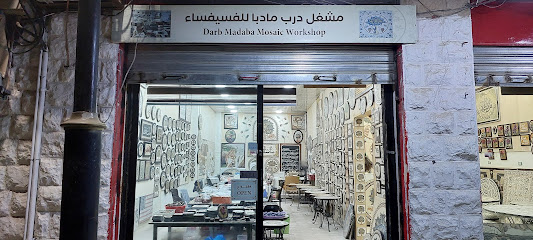
Al Badawiyh Gift Shop
Explore authentic Jordanian gifts at Al Badawiyh Gift Shop in Madaba, where every item reflects the rich culture and tradition of Jordan.
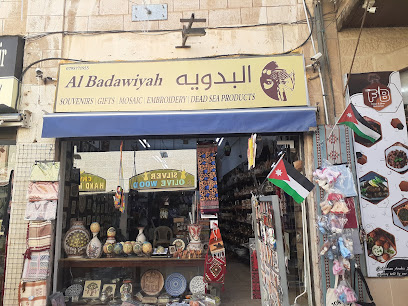
مفروشات الامبرطور
Explore the charm of Jordanian craftsmanship at مفروشات الامبرطور, your go-to destination for unique home goods in Madaba.

Maiaah Carpets Weaving
Explore Maiaah Carpets Weaving in Madaba, where traditional Jordanian craftsmanship brings vibrant carpets to life, each with its own unique story.
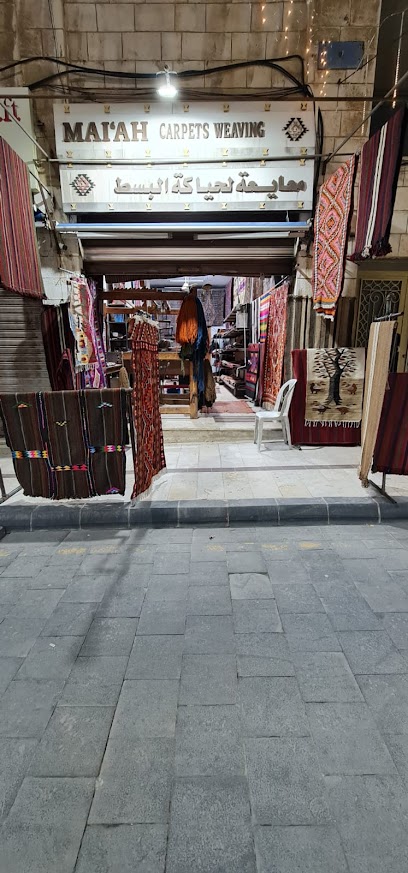
Peace Workshop
Experience authentic Jordanian craftsmanship at the Peace Workshop in Madaba, where unique souvenirs tell the stories of a rich cultural heritage.
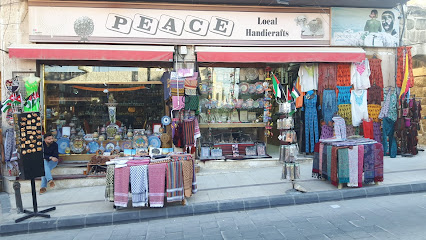
Aroma Dead Sea products
Experience the healing power of Dead Sea minerals at Aroma Dead Sea Products in Madaba, where beauty meets wellness.
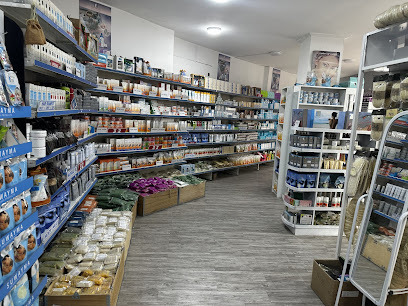
Shaheen nuts - Madaba محمص شاهين العائلات - مادبا
Explore the rich tastes of Jordan at Shaheen Nuts, a premier nut store in Madaba offering a wide variety of fresh and roasted nuts.
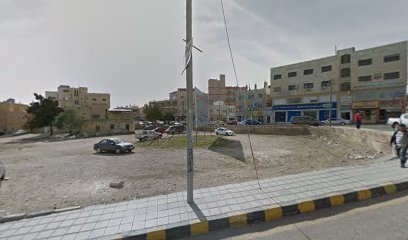
Elite Mosaic and Souvenir
Explore the vibrant culture of Madaba through unique mosaics and handcrafted souvenirs at Elite Mosaic and Souvenir.
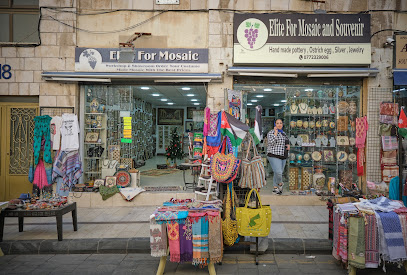
Essential bars & hidden hideouts
مطعم حارة جدودنا
Experience authentic Middle Eastern cuisine at مطعم حارة جدودنا in Madaba, where tradition meets taste in a vibrant dining atmosphere.
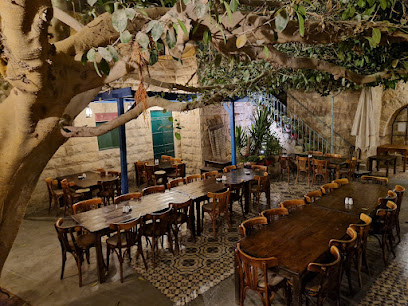
Ayola Cafe
Discover the essence of Jordanian cuisine at Ayola Cafe in Madaba, where delicious flavors and warm hospitality await every visitor.
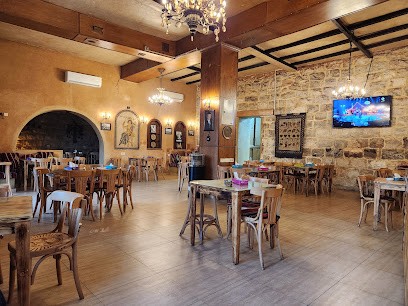
Mosaic City Hotel
Discover the heart of Madaba at Mosaic City Hotel, where comfort meets Jordanian hospitality amidst stunning cultural heritage.
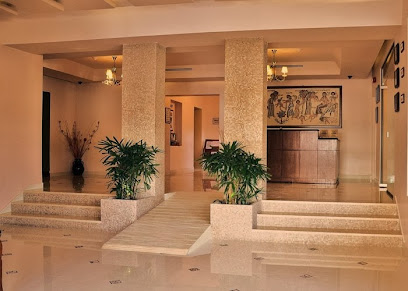
مطعم مراح سلامه Mrah Salameh Restaurant
Discover the rich flavors of Jordan at Mrah Salameh Restaurant in Madaba, where authentic cuisine meets warm hospitality.
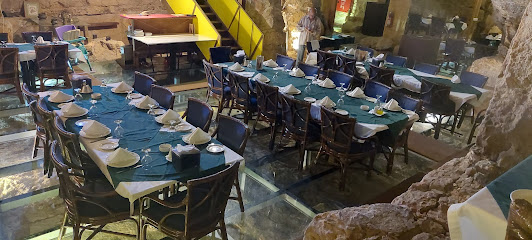
Bawabit Madaba Restaurant & Cafe
Experience the rich flavors of Jordan at Bawabit Madaba Restaurant & Cafe, a culinary haven in the heart of Madaba, renowned for its authentic dishes and warm hospitality.
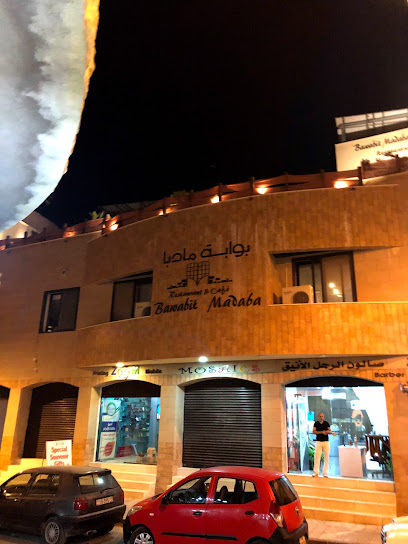
Carob House بيت الخروب
Discover the rich flavors of Jordan at Carob House, a culinary gem in Madaba, offering creative dishes and a warm ambiance.
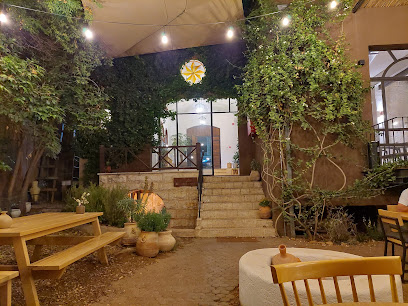
Jaw Zaman Restaurant and Caffè
Savor authentic Jordanian cuisine at Jaw Zaman Restaurant and Caffè, where every meal is a celebration of local flavors in a charming atmosphere.
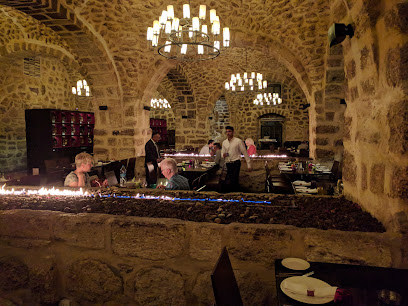
Ayar
Savor the authentic flavors of Jordanian cuisine at Ayar, a top-rated dining spot in the heart of Madaba.
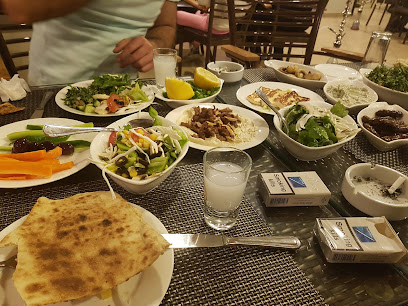
DANA Hills Restaurant
Experience authentic Jordanian cuisine with stunning views at DANA Hills Restaurant in Madaba, a perfect spot for every food lover.
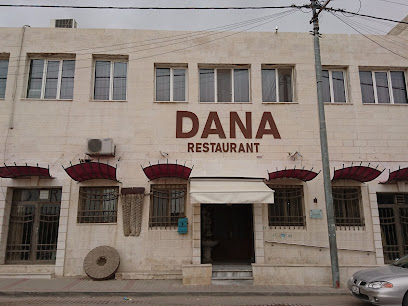
Rabwat Madaba Sky Bar & Restaurant
Discover stunning views and delectable cuisine at Rabwat Madaba Sky Bar & Restaurant, an essential stop for every traveler in Madaba.
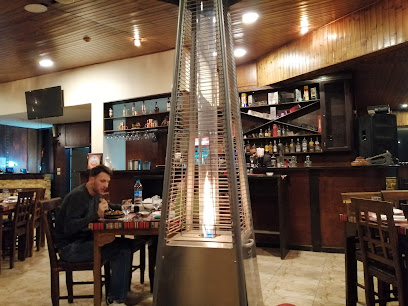
MEDAB Resto & Pub
Discover the vibrant atmosphere of MEDAB Resto & Pub, where delightful dining and lively nightlife meet in the heart of Madaba.
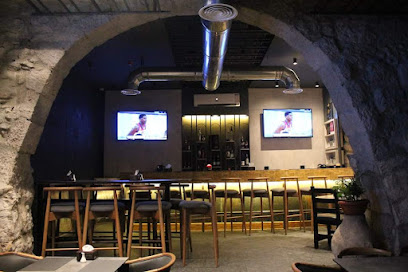
OFFLINE LIQUOR STORE
Explore the best beverages Madaba has to offer at the charming Offline Liquor Store, known for its quality selection and friendly service.
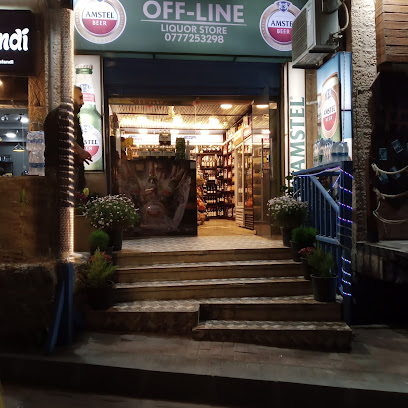
بيت الريحان || Bait AlRaihan
Discover the charm of Bait AlRaihan in Madaba, where exceptional coffee meets vibrant nightlife in a cozy setting.
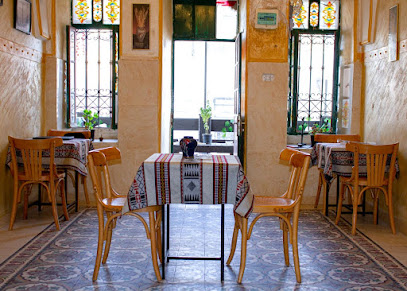
عصائر ايمن الخليلي
Experience refreshing flavors at Ayham Al-Khalili Juice Bar in Madaba, where fresh juices bring the taste of local fruits to life.
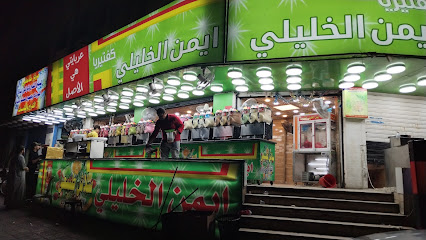
Local Phrases
-
- Helloمرحبا
[marhaban] - Goodbyeوداعا
[wadaan] - Yesنعم
[naam] - Noلا
[laa] - Please/You're welcomeمن فضلك
[min fadlik] - Thank youشكرا
[shukran] - Excuse me/Sorryعذرا
[aathiraa] - How are you?كيف حالك؟
[kayfa halak?] - Fine. And you?بخير. وأنت؟
[bikhayr. wa anta?] - Do you speak English?هل تتحدث الإنجليزية؟
[hal tatahadath al ingilizia?] - I don't understandأنا لا أفهم
[ana la afham]
- Helloمرحبا
-
- I'd like to see the menu, pleaseأريد أن أرى القائمة، من فضلك
[uridu an ara alqaimah, min fadlik] - I don't eat meatأنا لا آكل اللحم
[ana la aakul al lahme] - Cheers!في صحتك!
[fi sihatik] - I would like to pay, pleaseأود أن أدفع، من فضلك
[awadu an adfaa, min fadlik]
- I'd like to see the menu, pleaseأريد أن أرى القائمة، من فضلك
-
- Help!النجدة!
[alnajdah!] - Go away!انصرف!
[ansarif!] - Call the Police!اتصل بالشرطة!
[atassil bialshurta!] - Call a doctor!اتصل بالطبيب!
[atassil bialtabib!] - I'm lostأنا ضائع
[ana daa'ee] - I'm illأنا مريض
[ana mareed]
- Help!النجدة!
-
- I'd like to buy...أريد أن أشتري...
[uridu an ashtari...] - I'm just lookingأنا فقط أتطلع
[ana faqat atatallaa] - How much is it?كم سعره؟
[kam sa'aruh?] - That's too expensiveهذا غالي جدا
[hatha ghaali jiddan] - Can you lower the price?هل يمكنك خفض السعر؟
[hal yumkinuka khafd alsa'ar?]
- I'd like to buy...أريد أن أشتري...
-
- What time is it?كم الساعة؟
[kam alssaa'ah?] - It's one o'clockالساعة الواحدة
[alssaa'ah alwahidah] - Half past (10)العاشر و النصف
[al'ashir wa alnusf] - Morningالصباح
[assaabah] - Afternoonالمساء
[almasa'] - Eveningالليل
[allayl] - Yesterdayالبارحة
[albarihah] - Todayاليوم
[alyawm] - Tomorrowغدا
[ghadan] - 1واحد
[wahid] - 2اثنان
[ithnan] - 3ثلاثة
[thalatha] - 4أربعة
[arba'ah] - 5خمسة
[khamsah] - 6ستة
[sittah] - 7سبعة
[sab'ah] - 8ثمانية
[thamania] - 9تسعة
[tis'ah] - 10عشرة
[asharah]
- What time is it?كم الساعة؟
-
- Where's a/the...?أين...
[ayn...] - What's the address?ما هو العنوان؟
[ma huwa al'ainwan?] - Can you show me (on the map)?هل يمكنك أن تريني (على الخريطة)؟
[hal yumkinuka an tureeni (ala alkharitah)?] - When's the next (bus)?متى الحافلة القادمة؟
[mata alhafilah alqadimah?] - A ticket (to ....)تذكرة (إلى ...)
[tadhkirah (ila ...)]
- Where's a/the...?أين...
History of Madaba
-
Madaba, known as Medeba in ancient times, was a significant settlement in the Moabite kingdom. Historical records and archaeological findings date its origins back to the Bronze Age. The city's mention in the biblical account of the Moabite Stone, which commemorates the victories of King Mesha of Moab, underscores its historical importance.
-
During the Byzantine era, Madaba flourished as a center of Christianity. The city is renowned for its impressive collection of mosaics from this period, particularly the Madaba Mosaic Map, which is the oldest known geographic floor mosaic in art history. This map, found in the Church of St. George, provides a detailed depiction of the Holy Land and its surroundings during the 6th century.
-
With the rise of Islam in the 7th century, Madaba came under the control of the Umayyad Caliphate. The city continued to thrive, serving as a key location along trade routes. The Islamic influence brought new architectural styles and cultural elements, blending with the existing Byzantine heritage.
-
Under Ottoman rule, Madaba experienced a period of decline, but the 19th century saw a revival with the resettlement of Christian Arab tribes from Karak. This resettlement brought about a resurgence in the city's population and a renewed interest in its ancient heritage. Many of the current inhabitants can trace their ancestry back to this period.
-
In the 20th and 21st centuries, Madaba has grown into a vibrant city that attracts tourists and scholars alike. Extensive archaeological excavations have uncovered significant historical artifacts, further highlighting its rich past. The city's cultural fabric is a blend of ancient traditions and modern influences, making it a unique destination in Jordan.
Madaba Essentials
-
Madaba is conveniently located about 30 kilometers southwest of the capital, Amman, and is easily accessible via Queen Alia International Airport, which is approximately 25 kilometers away. From the airport, you can take a taxi or arrange for a hotel shuttle service. Additionally, public buses and private minibuses (known as 'servees') operate between Amman and Madaba, providing a cost-effective travel option.
-
Madaba is a relatively small city, making it easy to explore on foot. For longer distances within the city or to nearby attractions, taxis are readily available and generally inexpensive. Public buses and servees also connect Madaba with other cities and towns in Jordan. Renting a car is another viable option, offering greater flexibility to visit nearby sites like Mount Nebo and the Dead Sea.
-
The official currency in Jordan is the Jordanian Dinar (JOD). Credit cards are widely accepted in hotels, restaurants, and larger shops in Madaba, but it is advisable to carry cash for purchases in smaller establishments and markets. ATMs are readily available throughout the city for withdrawing cash.
-
Madaba is generally considered a safe destination for tourists. However, as with any travel destination, it is important to take standard precautions. Avoid walking alone at night in unfamiliar areas and be cautious with your belongings in crowded places. There are no specific high-crime areas targeting tourists, but it's always best to stay vigilant and aware of your surroundings.
-
In case of emergency, dial 911 for immediate assistance. Madaba has several medical facilities and pharmacies where you can seek help for health-related issues. It is highly recommended to have travel insurance that covers medical emergencies. The local police station is also available to assist in other types of emergencies.
-
Fashion: Do dress modestly, particularly when visiting religious sites. Avoid wearing revealing clothing. Religion: Do respect local customs and traditions. When entering mosques or churches, dress conservatively and women should cover their heads. Public Transport: Do be respectful and give up your seat to elderly passengers. Don’t eat or drink on public transport. Greetings: Do greet people with a handshake. A slight nod of the head is also a sign of respect. Eating & Drinking: Do try local delicacies and accept food offerings graciously. Don't refuse hospitality, as it is considered impolite.
-
To experience Madaba like a local, visit the local markets where you can buy fresh produce and traditional Jordanian goods. Engage with locals, as they are often friendly and willing to share stories about the city's history and culture. Don’t miss visiting the famous Madaba Map at St. George's Church and the Madaba Archaeological Park. For a unique culinary experience, try the traditional Jordanian dish 'Mansaf' at a local restaurant.
Trending Landmark in Madaba
-
Ma'in Hot Springs
-
St George's Greek Orthodox Church
-
Memorial Church of Moses
-
Mount Nebo
-
Roman Nymphaeum
-
Al Hakaya Museum
-
Fortress of Umm ar-Rasas (Old Roman City)
-
Apostles Church كنيسة الرسل
-
Qasr Al-Abed
-
Ayola Cafe
-
St. John the Baptist Roman Catholic Church
-
Mosaic City Hotel
-
Madaba Archaeological Park
-
Black Iris Hotel
-
Kawon bookstore
Nearby Cities to Madaba
-
Things To Do in Amman
-
Things To Do in Dead Sea
-
Things To Do in Salt
-
Things To Do in Ein Gedi
-
Things To Do in Jerusalem
-
Things To Do in Bethlehem
-
Things To Do in Kerak
-
Things To Do in Masada
-
Things To Do in Jerash
-
Things To Do in Modi'in
-
Things To Do in Mafraq
-
Things To Do in Beit She'an
-
Things To Do in Irbid
-
Things To Do in Azraq
-
Things To Do in Kfar Saba










